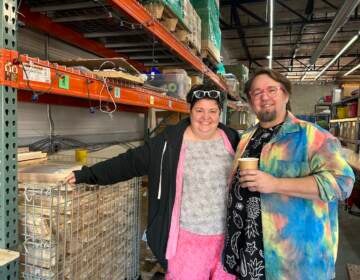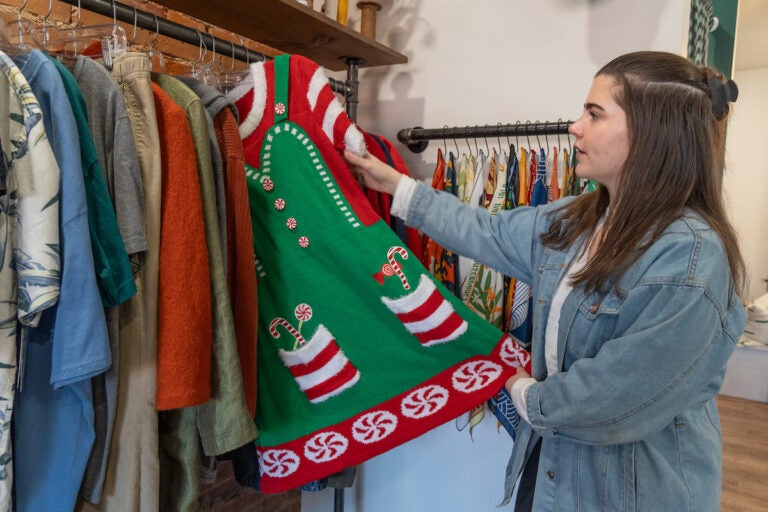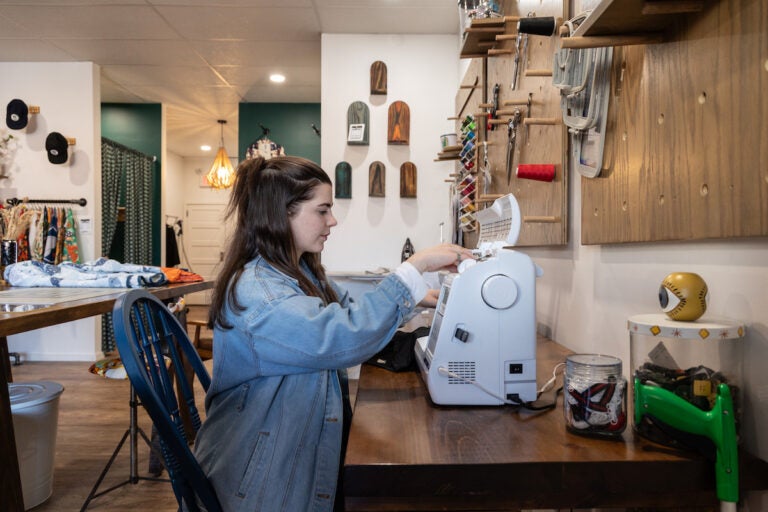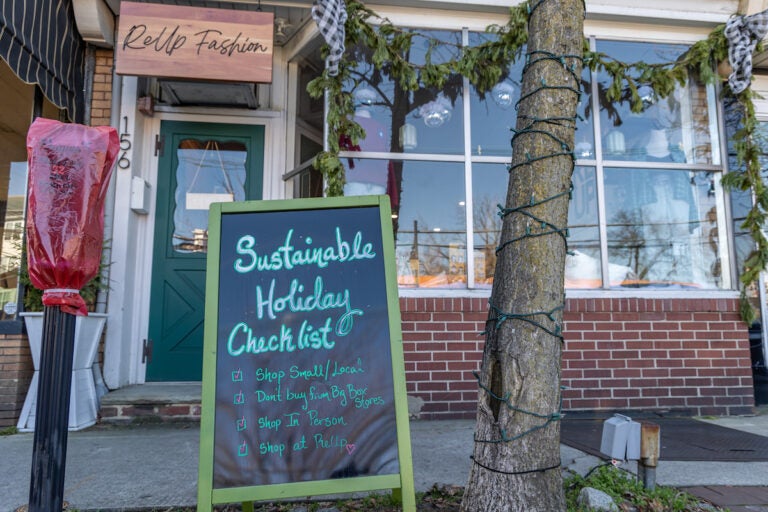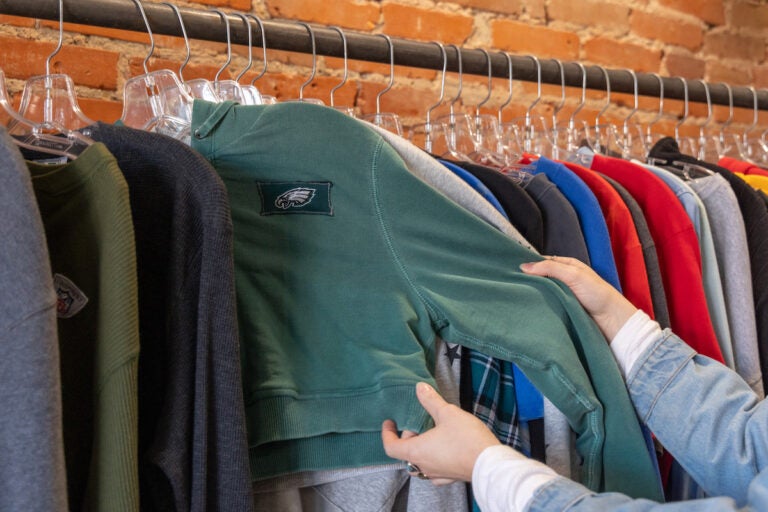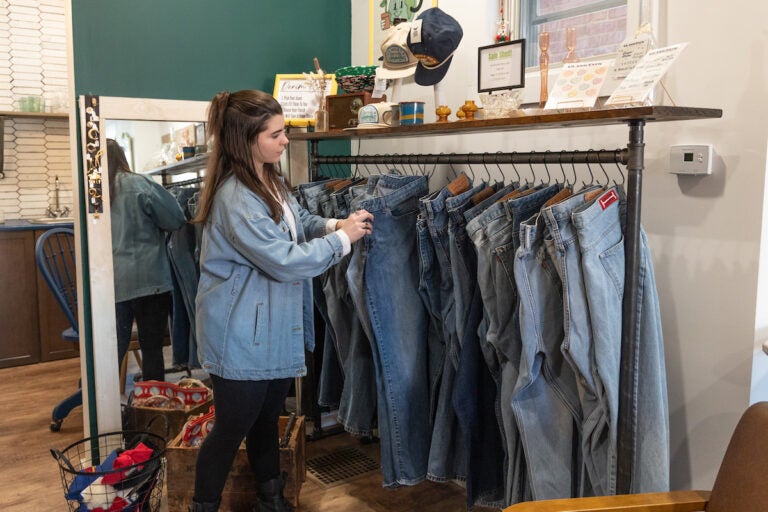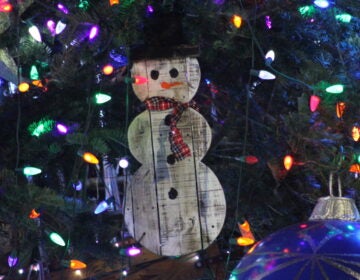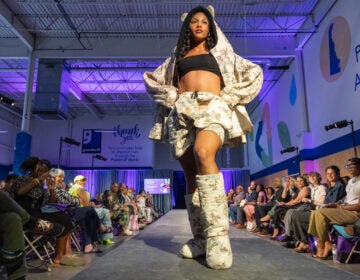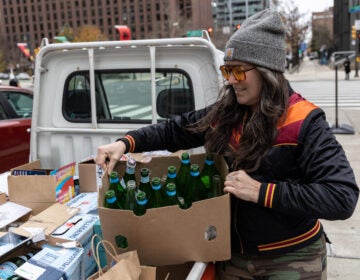Reducing wasteful gift-giving: Philly businesses, shoppers find ways to reuse items this holiday season
Research shows people create 25% more waste over the holiday season. Some shoppers are taking a different approach this year.
Listen 3:20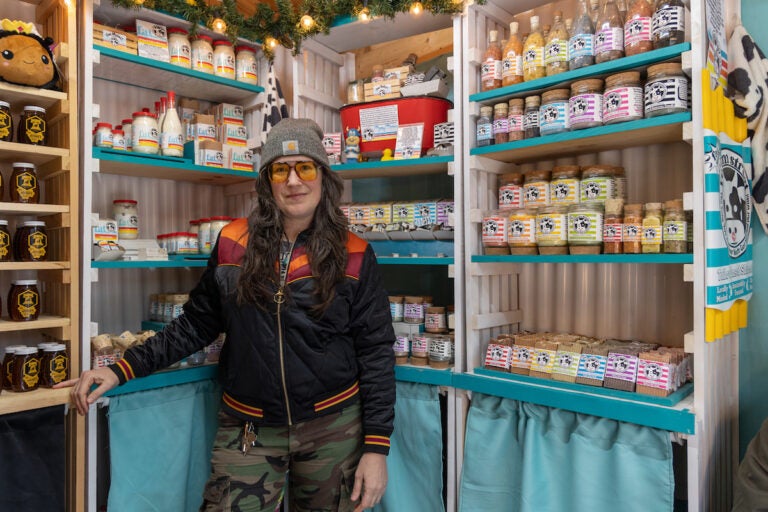
Melissa Lynn Torre, founder of the Vellum Street Soap Company, with the sustainable skin products she makes and jars in recycled bottles at the booth she shares with the Philadelphia Bee Company at Christmas Village in Love Park. (Kimberly Paynter/WHYY)
From Philly and the Pa. suburbs to South Jersey and Delaware, what would you like WHYY News to cover? Let us know!
Shoppers braved the cold this week in search of last-minute gifts at Philadelphia’s outdoor Christmas Village. As customers warmed up with hot chocolate, they browsed hats, scarves, jewelry, and ornaments across dozens of booths.
Near the food court and beer garden, customers scanned the wooden shelves at Vellum Street Soap Company. Shoppers found candles in salsa jars, bath salts in kombucha bottles, and skin lotion in pickle jars.
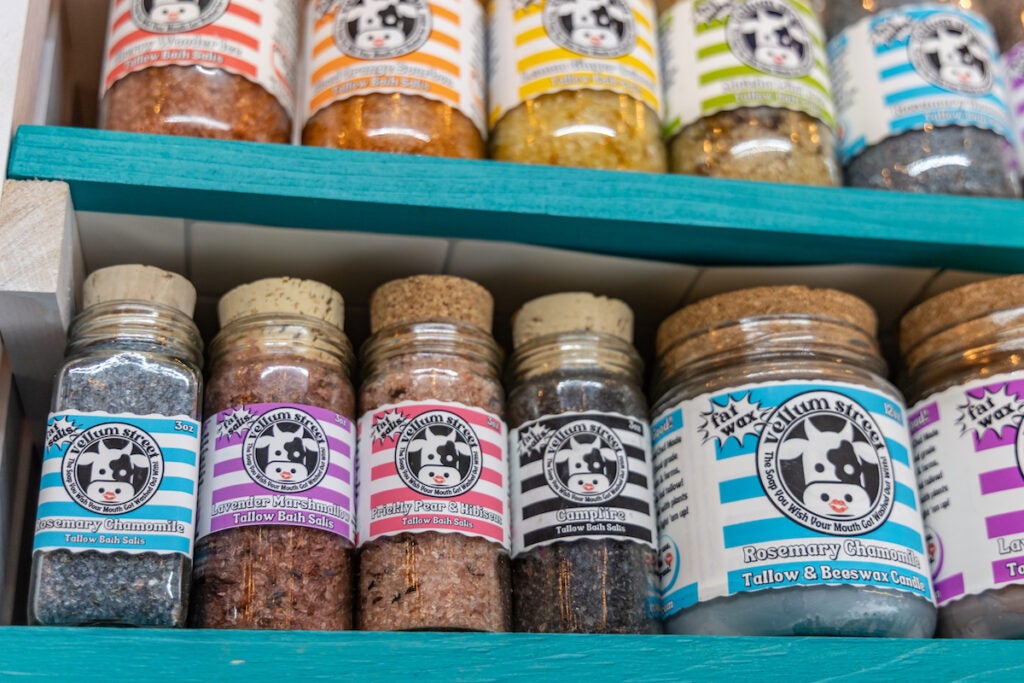
The season of celebration and tradition can be marked by overconsumption and waste. So the bath product vendor is trying to reduce its environmental impacts.
Owner Melissa Torre makes her products with tallow, or beef fat, sourced from small local farms to avoid the environmental impacts of shipping. And the glass containers are repurposed to reduce the amount of trash that enters landfills, or elsewhere.
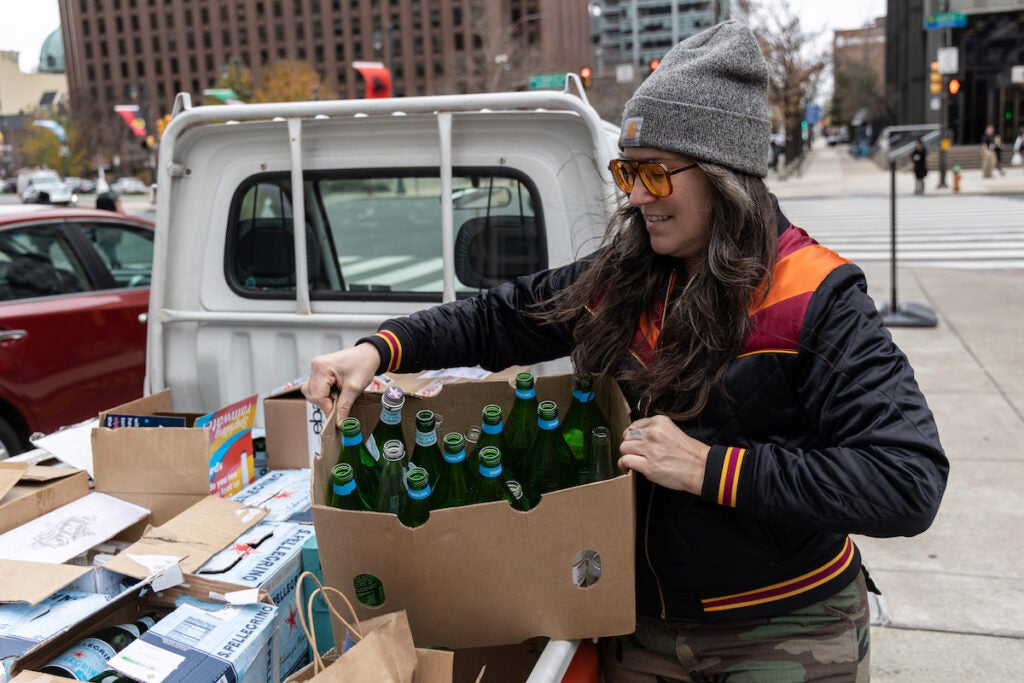
“[Glass] gets shipped to a lot of places out of our country. A lot of it ends up in the ocean,” Torre said. “So everything you throw away, it’s not gone. When you throw it away, it still exists somewhere in some form.”
Some local business owners such as Torre are encouraging customers to limit their gift-giving to locally-produced, usable products that don’t impact the environment.
Between shopping, decorating, and eating, people create at least 25% more waste during the holidays, according to Stanford University. Shopping bags, packaging, and wrapping paper also contribute to an additional 1 million tons of trash entering landfills each week.
The heaps of items people receive over the holidays, from clothing to toys, are often made with petroleum byproducts, and shipping the items around the world contributes to fossil fuel emissions. People eventually discard all this “stuff,” which makes its way to landfills.
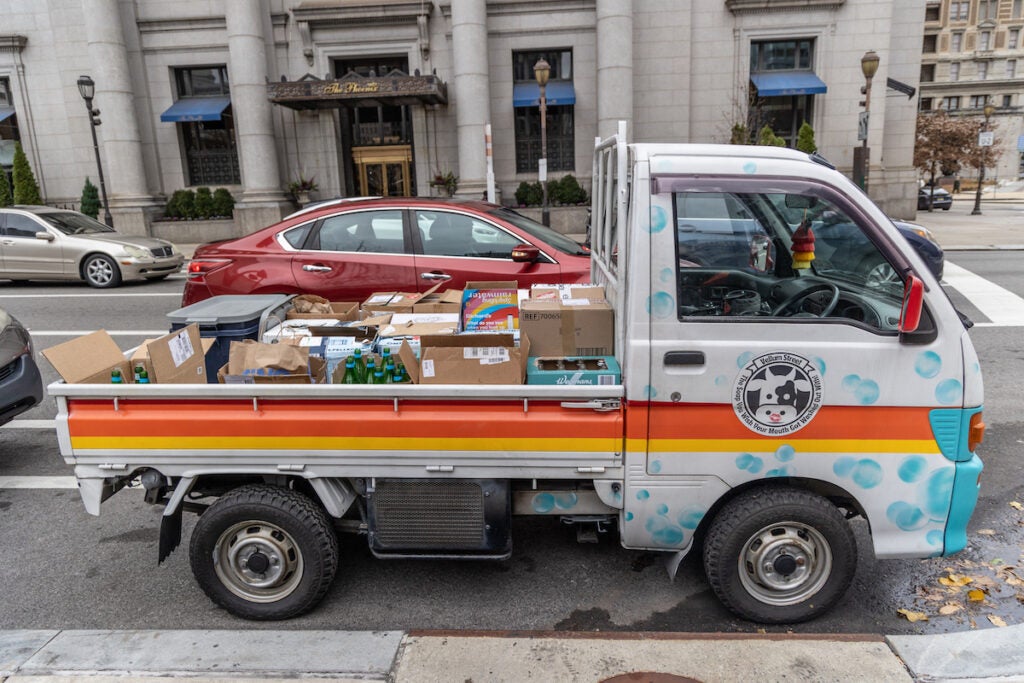
“We’re consuming, or buying, products often for the sake of needing a gift to wrap up and give to someone,” said Karen Winterich, a professor at Penn State University who studies consumer behavior and sustainability.
“Oftentimes, we don’t think about all of the packaging, and the wrapping materials, and all the gifts until it’s the end of Christmas morning, and you’re surrounded by this pile of stuff —- and it’s not even bringing you joy.”
Some local businesses say customers are becoming more interested in shopping with the environment in mind, however. Surveys find people around the world have become more conscious about environmental sustainability since the pandemic.
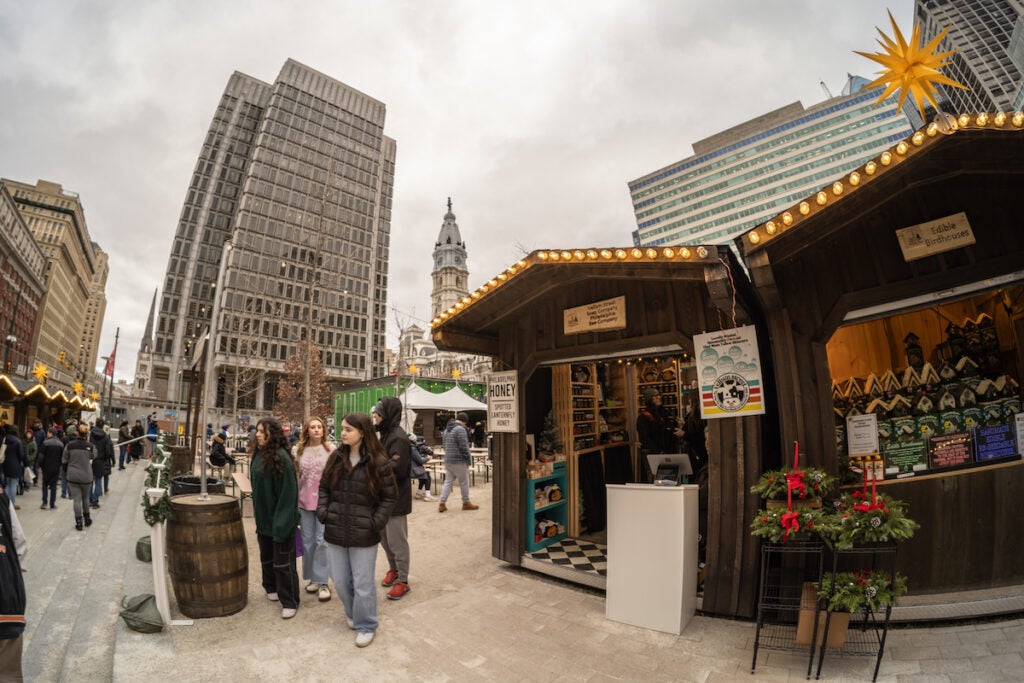
“We have to take a step back and look at what we’re buying and how we’re buying,” said Tara Martinak, who owns ReUp Fashion in Haddon Township, New Jersey. “Tradition and holidays are fun, but it doesn’t need to be an excuse to stop caring about the earth or the environment.”
Martinak finds discarded textiles and clothes, and transforms them into fashion items to reduce the millions of tons of fabric waste that’s sent to landfills, or incinerated, every year — and to save the hundreds of gallons of water required to create a single cotton T-shirt.
Fashion production also contributes to a significant amount of carbon emissions and wastewater pollution.
Among the clothing items at ReUp Fashion are a blue floral-and-checkered jacket made out of a patchwork quilt, and a retro floral jacket that, in its previous life, was a curtain.
“Sometimes people try to shop at thrift stores, and you like something, but it doesn’t fit right, or it’s a little bit outdated,” Martinak said. “I’m that middleman that takes those things and updates them so they can have a new lifecycle.”
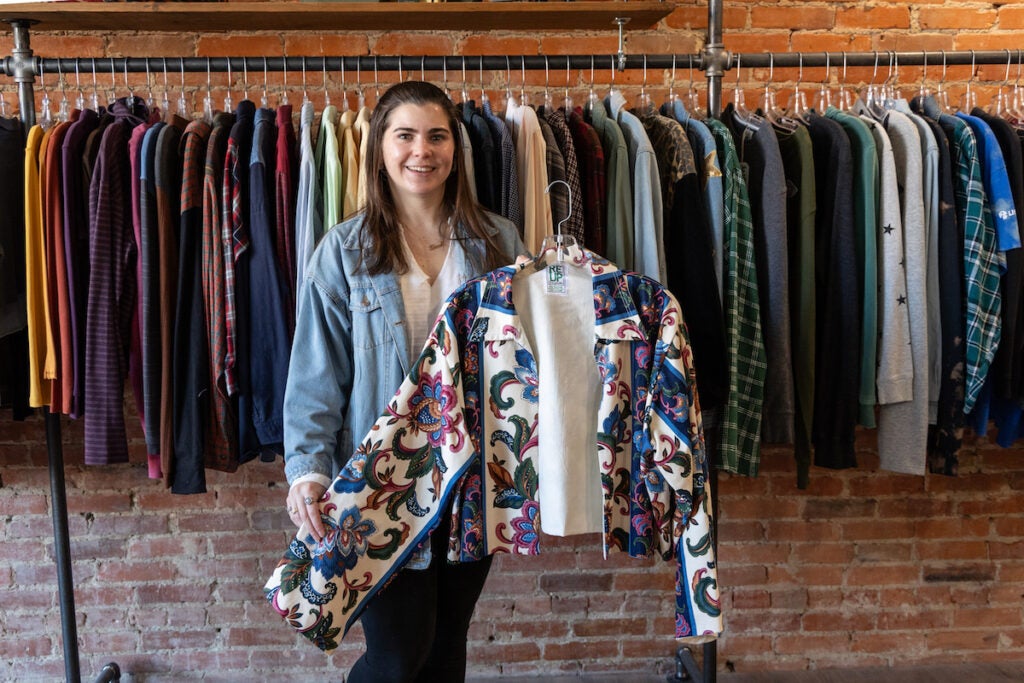
Philadelphia resident Meg Retz is also trying to keep used items out of the trash bin. The mother of three gives her family second-hand items for Christmas and on their birthdays. Retz finds items at consignment stores and from members of “Buy Nothing” — a Facebook group for people looking to find or hand off used items.
Her daughter received used jewelry in the shape of blue lollipops and blue star-patterned rain boots for her 9th birthday this month.
“Anything that you can get that is not new, not from a store, and not from Amazon really feels like a better use of resources,” Metz said. “I love the idea that we are not buying plastic rain boots over, and over, and over again, when we can do it in a much more environmentally-friendly, cost-effective way.”
She said her family also feels joy knowing that the items they receive, or give to others, are getting a second life.
Similarly, Jaylynne Echols gifts her loved ones used items from Buy Nothing.
“There’s been times I’ve gotten really nice wool coats for free and re-gifted them, and people are like, ‘Oh my God, you didn’t have to spend this money,’” said the Philly resident.
Last year, Echols started her own fashion business, Metamorphosis by JB. She hand paints designs — from Eagles logos to Evil Eyes —- on used denim jackets and jeans. Echols said she believes repurposed or handmade gifts are much more meaningful and personal than store-bought items.
“Getting a vintage piece of furniture and giving it a repaint is going to be better quality than going to IKEA or buying off Amazon,” she said. “And it’ll have more meaning, because [you] put some time into it … and then people will appreciate that more.”
In addition to gifting loved ones used items, there are several other steps people can take to reduce their environmental impact over the holidays.
According to the nonprofit Clean Air Partnership, people use about 8,000 tons of wrapping paper — or 50,000 trees — every year. Experts suggest wrapping gifts in reusable cloth or with recyclable materials, such as newspapers.
Shopping locally also can make a difference. Shipping and returning gifts contributes to millions of metric tons of carbon dioxide a year. Winterich of Penn State suggests only buying gifts that will be used and are needed by the receiver.
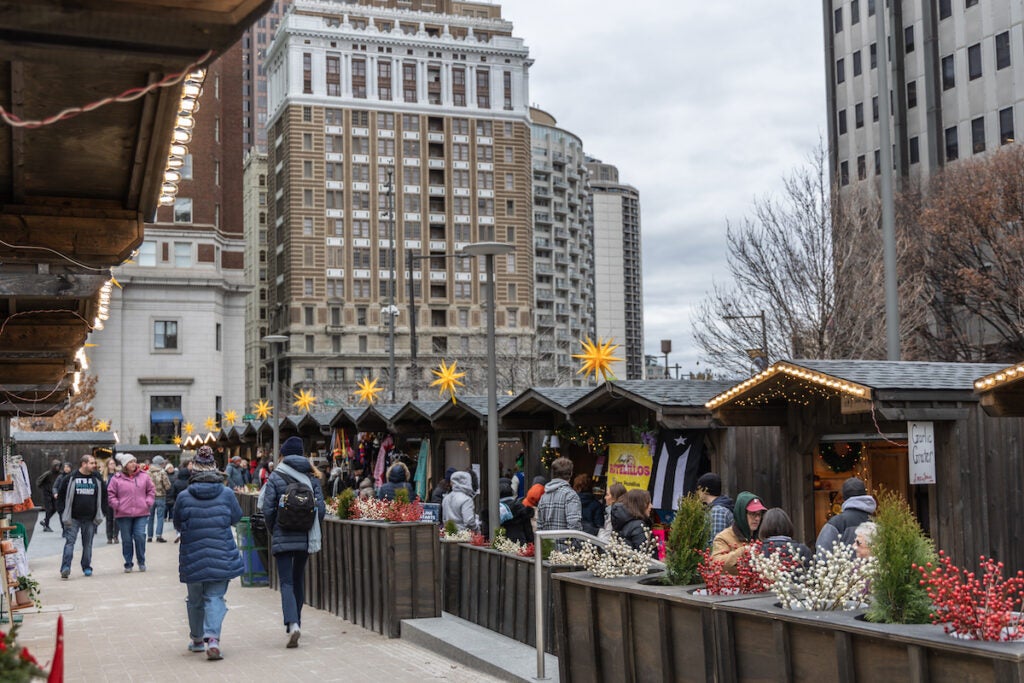
Torre of Vellum Street Soap Company suggests offering someone an experience, or hand-making a gift.
“Candle-making is a really easy thing, and soap-making also,” she said. “If you can bake a cake, you can make soap.”

Get daily updates from WHYY News!
WHYY is your source for fact-based, in-depth journalism and information. As a nonprofit organization, we rely on financial support from readers like you. Please give today.



